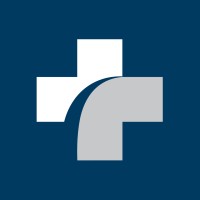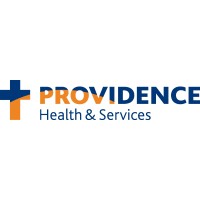
Med Center Health Company Cyber Security Posture
medcenterhealth.orgMed Center Health is a not-for-profit integrated healthcare system serving the Southcentral Kentucky region. The health system includes hospitals in Bowling Green, Albany, Caverna (Horse Cave), Franklin, Russellville and Scottsville. Combined, the hospitals comprise 529 acute care beds, 110 extended care beds and 600+ on-staff physicians, nurse practitioners and physician assistants in more than 50 specialties. Med Center Health has more than 4,000 employees and over 200 employed providers. In fiscal year 2023, Med Center Health provided $123 million in community benefit. Learn more at MedCenterHealth.org.
MCH Company Details
med-center-health
661 employees
2927.0
62
Hospitals and Health Care
medcenterhealth.org
Scan still pending
MED_2563255
In-progress
Between 800 and 900
This score is AI-generated and less favored by cyber insurers, who prefer the TPRM score.
 MCH Global Score
MCH Global Score.png)

Med Center Health Company Scoring based on AI Models
| Model Name | Date | Description | Current Score Difference | Score |
|---|---|---|---|---|
| AVERAGE-Industry | 03-12-2025 | This score represents the average cybersecurity rating of companies already scanned within the same industry. It provides a benchmark to compare an individual company's security posture against its industry peers. | N/A | Between 800 and 900 |
Med Center Health Company Cyber Security News & History
| Entity | Type | Severity | Impact | Seen | Url ID | Details | View |
|---|---|---|---|---|---|---|---|
| Med Center Health | Breach | 85 | 4 | 03/2017 | MED1122822 | Link | |
Rankiteo Explanation : Attack with significant impact with customers data leaksDescription: Med Center Health suffered from a data breach incident that affected patients at The Medical Center Bowling Green. The exposed information includes name, address, Social Security number, health insurance information, diagnosis and procedure codes, and charges for medical services. However, the information obtained did not include patient medical records. They notified patients as quickly as possible and offered free credit monitoring identity protection services for one year. | |||||||
Med Center Health Company Subsidiaries

Med Center Health is a not-for-profit integrated healthcare system serving the Southcentral Kentucky region. The health system includes hospitals in Bowling Green, Albany, Caverna (Horse Cave), Franklin, Russellville and Scottsville. Combined, the hospitals comprise 529 acute care beds, 110 extended care beds and 600+ on-staff physicians, nurse practitioners and physician assistants in more than 50 specialties. Med Center Health has more than 4,000 employees and over 200 employed providers. In fiscal year 2023, Med Center Health provided $123 million in community benefit. Learn more at MedCenterHealth.org.
Access Data Using Our API

Get company history
.png)
MCH Cyber Security News
Central Maine Healthcare tackles suspected cybersecurity issue; hospitals remain open
Central Maine Healthcare shuts down IT systems after unusual activity, but facilities remain open for patients. Future updates will follow ...
Healthcare Data Breach Statistics
In 2023, more than 93 million healthcare records were exposed or stolen in data breaches at business associates compared to 34.9 million records ...
Cyber security expert calls ransomware attack on UMC a ‘national security issue’
The University Medical Center Health System remains under attack Friday evening. On Thursday, the hospital confirmed a ransomware attack led to an IT outage.
A Look at 2024’s Health Care Cybersecurity Challenges | AHA News
With 386 health care cyber-attacks reported thus far in 2024, data-theft crimes and ransomware attacks against health care and our ...
Crucial Texas hospital system turning ambulances away after ransomware attack
The University Medical Center Health System in Lubbock, Texas, confirmed on Friday that outages are being caused by a ransomware incident.
Cybersecurity attack continues impact at West Texas hospitals after three weeks
On Sept. 26, the UMC Health System was hit with a ransomware attack. As the only Level 1 trauma center in West Texas had to divert patients, ...
2nd cyberattack in 4 months at Michigan Medicine leaks data of nearly 58,000 patients
Michigan Medicine was hit by a cyberattack in July that compromised the names, medical record numbers and diagnostic information of 57891 ...
Lurie Children's Hospital says nearly 800K patients' data compromised in cyberattack
Lurie Children's Hospital of Chicago sent out data breach letters to about 792,000 people warning them of cybercriminals' potential access ...
UC San Diego Awarded $9.5 Million to Enhance Cybersecurity in Health Care
UC San Diego Awarded $9.5 Million to Enhance Cybersecurity in Health Care · Prestigious federal contract award will help protect life-saving ...

MCH Similar Companies

Advocate Health
Advocate Health is redefining how, when and where care is delivered to help people live well. We’re providing equitable care for all in our communities and using our combined strength and expertise to deliver better outcomes at a lower cost. Headquartered in Charlotte, North Carolina, we have a com

Providence Health & Services
At Providence, our strength begins with understanding. We take time to see, hear and value everyone who walks through our doors—patient or caregiver, family support person or volunteer. Working with us means that regardless of your role, we’ll walk alongside you in your career, supporting you so you

University Health Network
University Health Network (UHN) is Canada's largest research hospital, which includes Toronto General and Toronto Western Hospitals, Princess Margaret Cancer Centre, the Toronto Rehabilitation Institute and the Michener Institute for Education at UHN. The scope of research and complexity of cases at

Vancouver Coastal Health
Join a team connected by collaboration, support and most importantly, the goal of providing quality patient care. We value career growth with employer-supported training, encourage a culture where everyone’s voice is heard and strive to create a supportive team environment. To learn more, visit vch.

CERBA HEALTHCARE
Cerba HealthCare, a leading player in medical diagnosis, aims to support the evolution of health systems towards more prevention. It draws on more than 50 years of expertise in clinical pathology to better assess the risk of diseases development, detect and diagnose diseases earlier, and optimize th

Memorial Hermann Health System
Advancing Health. Personalizing Care. Memorial Hermann Health System is a nonprofit, values-driven, community-owned health system dedicated to improving health. A fully integrated health system with more than 260 care delivery sites throughout the Greater Houston area, Memorial Hermann is committe

Frequently Asked Questions (FAQ) on Cybersecurity Incidents
MCH CyberSecurity History Information
Total Incidents: According to Rankiteo, MCH has faced 1 incidents in the past.
Incident Types: The types of cybersecurity incidents that have occurred include ['Breach'].
Total Financial Loss: The total financial loss from these incidents is estimated to be {total_financial_loss}.
Cybersecurity Posture: The company's overall cybersecurity posture is described as Med Center Health is a not-for-profit integrated healthcare system serving the Southcentral Kentucky region. The health system includes hospitals in Bowling Green, Albany, Caverna (Horse Cave), Franklin, Russellville and Scottsville. Combined, the hospitals comprise 529 acute care beds, 110 extended care beds and 600+ on-staff physicians, nurse practitioners and physician assistants in more than 50 specialties. Med Center Health has more than 4,000 employees and over 200 employed providers. In fiscal year 2023, Med Center Health provided $123 million in community benefit. Learn more at MedCenterHealth.org..
Detection and Response: The company detects and responds to cybersecurity incidents through {description_of_detection_and_response_process}.
Incident Details
Incident 1: Ransomware Attack
Title: {Incident_Title}
Description: {Brief_description_of_the_incident}
Date Detected: {Detection_Date}
Date Publicly Disclosed: {Disclosure_Date}
Date Resolved: {Resolution_Date}
Type: {Type_of_Attack}
Attack Vector: {Attack_Vector}
Vulnerability Exploited: {Vulnerability}
Threat Actor: {Threat_Actor}
Motivation: {Motivation}
Incident 2: Data Breach
Title: {Incident_Title}
Description: {Brief_description_of_the_incident}
Date Detected: {Detection_Date}
Date Publicly Disclosed: {Disclosure_Date}
Date Resolved: {Resolution_Date}
Type: {Type_of_Attack}
Attack Vector: {Attack_Vector}
Vulnerability Exploited: {Vulnerability}
Threat Actor: {Threat_Actor}
Motivation: {Motivation}
Common Attack Types: As of now, the company has not encountered any reported incidents involving common cyberattacks.
Identification of Attack Vectors: The company identifies the attack vectors used in incidents through {description_of_identification_process}.
Impact of the Incidents
Incident 1: Ransomware Attack
Financial Loss: {Financial_Loss}
Data Compromised: {Data_Compromised}
Systems Affected: {Systems_Affected}
Downtime: {Downtime}
Operational Impact: {Operational_Impact}
Conversion Rate Impact: {Conversion_Rate_Impact}
Revenue Loss: {Revenue_Loss}
Customer Complaints: {Customer_Complaints}
Brand Reputation Impact: {Brand_Reputation_Impact}
Legal Liabilities: {Legal_Liabilities}
Identity Theft Risk: {Identity_Theft_Risk}
Payment Information Risk: {Payment_Information_Risk}
Incident 2: Data Breach
Financial Loss: {Financial_Loss}
Data Compromised: {Data_Compromised}
Systems Affected: {Systems_Affected}
Downtime: {Downtime}
Operational Impact: {Operational_Impact}
Conversion Rate Impact: {Conversion_Rate_Impact}
Revenue Loss: {Revenue_Loss}
Customer Complaints: {Customer_Complaints}
Brand Reputation Impact: {Brand_Reputation_Impact}
Legal Liabilities: {Legal_Liabilities}
Identity Theft Risk: {Identity_Theft_Risk}
Payment Information Risk: {Payment_Information_Risk}
Average Financial Loss: The average financial loss per incident is {average_financial_loss}.
Commonly Compromised Data Types: The types of data most commonly compromised in incidents are {list_of_commonly_compromised_data_types}.
Incident 1: Ransomware Attack
Entity Name: {Entity_Name}
Entity Type: {Entity_Type}
Industry: {Industry}
Location: {Location}
Size: {Size}
Customers Affected: {Customers_Affected}
Incident 2: Data Breach
Entity Name: {Entity_Name}
Entity Type: {Entity_Type}
Industry: {Industry}
Location: {Location}
Size: {Size}
Customers Affected: {Customers_Affected}
Response to the Incidents
Incident 1: Ransomware Attack
Incident Response Plan Activated: {Yes/No}
Third Party Assistance: {Yes/No}
Law Enforcement Notified: {Yes/No}
Containment Measures: {Containment_Measures}
Remediation Measures: {Remediation_Measures}
Recovery Measures: {Recovery_Measures}
Communication Strategy: {Communication_Strategy}
Adaptive Behavioral WAF: {Adaptive_Behavioral_WAF}
On-Demand Scrubbing Services: {On_Demand_Scrubbing_Services}
Network Segmentation: {Network_Segmentation}
Enhanced Monitoring: {Enhanced_Monitoring}
Incident 2: Data Breach
Incident Response Plan Activated: {Yes/No}
Third Party Assistance: {Yes/No}
Law Enforcement Notified: {Yes/No}
Containment Measures: {Containment_Measures}
Remediation Measures: {Remediation_Measures}
Recovery Measures: {Recovery_Measures}
Communication Strategy: {Communication_Strategy}
Adaptive Behavioral WAF: {Adaptive_Behavioral_WAF}
On-Demand Scrubbing Services: {On_Demand_Scrubbing_Services}
Network Segmentation: {Network_Segmentation}
Enhanced Monitoring: {Enhanced_Monitoring}
Incident Response Plan: The company's incident response plan is described as {description_of_incident_response_plan}.
Third-Party Assistance: The company involves third-party assistance in incident response through {description_of_third_party_involvement}.
Data Breach Information
Incident 2: Data Breach
Type of Data Compromised: {Type_of_Data}
Number of Records Exposed: {Number_of_Records}
Sensitivity of Data: {Sensitivity_of_Data}
Data Exfiltration: {Yes/No}
Data Encryption: {Yes/No}
File Types Exposed: {File_Types}
Personally Identifiable Information: {Yes/No}
Prevention of Data Exfiltration: The company takes the following measures to prevent data exfiltration: {description_of_prevention_measures}.
Handling of PII Incidents: The company handles incidents involving personally identifiable information (PII) through {description_of_handling_process}.
Ransomware Information
Incident 1: Ransomware Attack
Ransom Demanded: {Ransom_Amount}
Ransom Paid: {Ransom_Paid}
Ransomware Strain: {Ransomware_Strain}
Data Encryption: {Yes/No}
Data Exfiltration: {Yes/No}
Ransom Payment Policy: The company's policy on paying ransoms in ransomware incidents is described as {description_of_ransom_payment_policy}.
Data Recovery from Ransomware: The company recovers data encrypted by ransomware through {description_of_data_recovery_process}.
Regulatory Compliance
Incident 1: Ransomware Attack
Regulations Violated: {Regulations_Violated}
Fines Imposed: {Fines_Imposed}
Legal Actions: {Legal_Actions}
Regulatory Notifications: {Regulatory_Notifications}
Incident 2: Data Breach
Regulations Violated: {Regulations_Violated}
Fines Imposed: {Fines_Imposed}
Legal Actions: {Legal_Actions}
Regulatory Notifications: {Regulatory_Notifications}
Regulatory Frameworks: The company complies with the following regulatory frameworks regarding cybersecurity: {list_of_regulatory_frameworks}.
Ensuring Regulatory Compliance: The company ensures compliance with regulatory requirements through {description_of_compliance_measures}.
Lessons Learned and Recommendations
Incident 1: Ransomware Attack
Lessons Learned: {Lessons_Learned}
Incident 2: Data Breach
Lessons Learned: {Lessons_Learned}
Incident 1: Ransomware Attack
Recommendations: {Recommendations}
Incident 2: Data Breach
Recommendations: {Recommendations}
Key Lessons Learned: The key lessons learned from past incidents are {list_of_key_lessons_learned}.
Implemented Recommendations: The company has implemented the following recommendations to improve cybersecurity: {list_of_implemented_recommendations}.
References
Additional Resources: Stakeholders can find additional resources on cybersecurity best practices at {list_of_additional_resources}.
Investigation Status
Incident 1: Ransomware Attack
Investigation Status: {Investigation_Status}
Incident 2: Data Breach
Investigation Status: {Investigation_Status}
Communication of Investigation Status: The company communicates the status of incident investigations to stakeholders through {description_of_communication_process}.
Stakeholder and Customer Advisories
Incident 1: Ransomware Attack
Stakeholder Advisories: {Stakeholder_Advisories}
Customer Advisories: {Customer_Advisories}
Incident 2: Data Breach
Stakeholder Advisories: {Stakeholder_Advisories}
Customer Advisories: {Customer_Advisories}
Advisories Provided: The company provides the following advisories to stakeholders and customers following an incident: {description_of_advisories_provided}.
Initial Access Broker
Incident 1: Ransomware Attack
Entry Point: {Entry_Point}
Reconnaissance Period: {Reconnaissance_Period}
Backdoors Established: {Backdoors_Established}
High Value Targets: {High_Value_Targets}
Data Sold on Dark Web: {Yes/No}
Incident 2: Data Breach
Entry Point: {Entry_Point}
Reconnaissance Period: {Reconnaissance_Period}
Backdoors Established: {Backdoors_Established}
High Value Targets: {High_Value_Targets}
Data Sold on Dark Web: {Yes/No}
Monitoring and Mitigation of Initial Access Brokers: The company monitors and mitigates the activities of initial access brokers through {description_of_monitoring_and_mitigation_measures}.
Post-Incident Analysis
Incident 1: Ransomware Attack
Root Causes: {Root_Causes}
Corrective Actions: {Corrective_Actions}
Incident 2: Data Breach
Root Causes: {Root_Causes}
Corrective Actions: {Corrective_Actions}
Post-Incident Analysis Process: The company's process for conducting post-incident analysis is described as {description_of_post_incident_analysis_process}.
Corrective Actions Taken: The company has taken the following corrective actions based on post-incident analysis: {list_of_corrective_actions_taken}.
Additional Questions
General Information
Ransom Payment History: The company has {paid/not_paid} ransoms in the past.
Last Ransom Demanded: The amount of the last ransom demanded was {last_ransom_amount}.
Last Attacking Group: The attacking group in the last incident was {last_attacking_group}.
Incident Details
Most Recent Incident Detected: The most recent incident detected was on {most_recent_incident_detected_date}.
Most Recent Incident Publicly Disclosed: The most recent incident publicly disclosed was on {most_recent_incident_publicly_disclosed_date}.
Most Recent Incident Resolved: The most recent incident resolved was on {most_recent_incident_resolved_date}.
Impact of the Incidents
Highest Financial Loss: The highest financial loss from an incident was {highest_financial_loss}.
Most Significant Data Compromised: The most significant data compromised in an incident was {most_significant_data_compromised}.
Most Significant System Affected: The most significant system affected in an incident was {most_significant_system_affected}.
Response to the Incidents
Third-Party Assistance in Most Recent Incident: The third-party assistance involved in the most recent incident was {third_party_assistance_in_most_recent_incident}.
Containment Measures in Most Recent Incident: The containment measures taken in the most recent incident were {containment_measures_in_most_recent_incident}.
Data Breach Information
Most Sensitive Data Compromised: The most sensitive data compromised in a breach was {most_sensitive_data_compromised}.
Number of Records Exposed: The number of records exposed in the most significant breach was {number_of_records_exposed}.
Ransomware Information
Highest Ransom Demanded: The highest ransom demanded in a ransomware incident was {highest_ransom_demanded}.
Highest Ransom Paid: The highest ransom paid in a ransomware incident was {highest_ransom_paid}.
Regulatory Compliance
Highest Fine Imposed: The highest fine imposed for a regulatory violation was {highest_fine_imposed}.
Most Significant Legal Action: The most significant legal action taken for a regulatory violation was {most_significant_legal_action}.
Lessons Learned and Recommendations
Most Significant Lesson Learned: The most significant lesson learned from past incidents was {most_significant_lesson_learned}.
Most Significant Recommendation Implemented: The most significant recommendation implemented to improve cybersecurity was {most_significant_recommendation_implemented}.
References
Most Recent Source: The most recent source of information about an incident is {most_recent_source}.
Most Recent URL for Additional Resources: The most recent URL for additional resources on cybersecurity best practices is {most_recent_url}.
Investigation Status
Current Status of Most Recent Investigation: The current status of the most recent investigation is {current_status_of_most_recent_investigation}.
Stakeholder and Customer Advisories
Most Recent Stakeholder Advisory: The most recent stakeholder advisory issued was {most_recent_stakeholder_advisory}.
Most Recent Customer Advisory: The most recent customer advisory issued was {most_recent_customer_advisory}.
Initial Access Broker
Most Recent Entry Point: The most recent entry point used by an initial access broker was {most_recent_entry_point}.
Most Recent Reconnaissance Period: The most recent reconnaissance period for an incident was {most_recent_reconnaissance_period}.
Post-Incident Analysis
Most Significant Root Cause: The most significant root cause identified in post-incident analysis was {most_significant_root_cause}.
Most Significant Corrective Action: The most significant corrective action taken based on post-incident analysis was {most_significant_corrective_action}.
What Do We Measure?
















Every week, Rankiteo analyzes billions of signals to give organizations a sharper, faster view of emerging risks. With deeper, more actionable intelligence at their fingertips, security teams can outpace threat actors, respond instantly to Zero-Day attacks, and dramatically shrink their risk exposure window.
These are some of the factors we use to calculate the overall score:
Identify exposed access points, detect misconfigured SSL certificates, and uncover vulnerabilities across the network infrastructure.
Gain visibility into the software components used within an organization to detect vulnerabilities, manage risk, and ensure supply chain security.
Monitor and manage all IT assets and their configurations to ensure accurate, real-time visibility across the company's technology environment.
Leverage real-time insights on active threats, malware campaigns, and emerging vulnerabilities to proactively defend against evolving cyberattacks.




